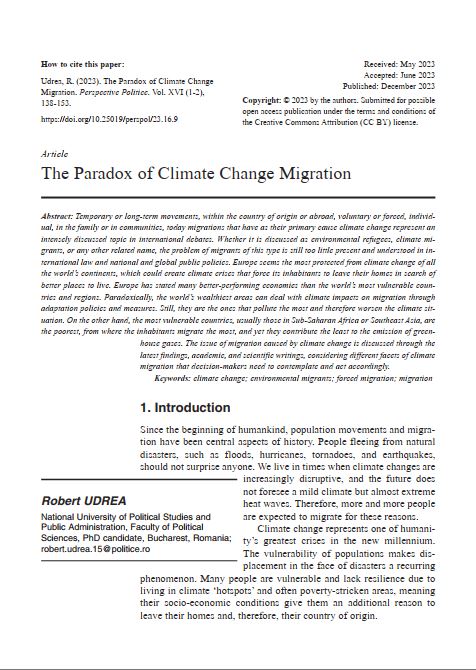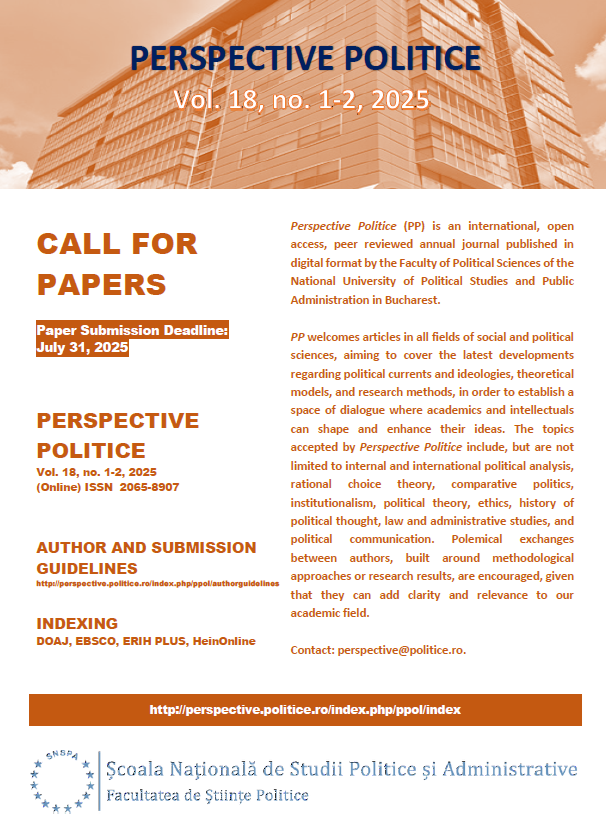The Paradox of Climate Change Migration
Abstract
Temporary or long-term movements, within the country of origin or abroad, voluntary or forced, individual, in the family or in communities, today migrations that have as their primary cause climate change represent an intensely discussed topic in international debates. Whether it is discussed as environmental refugees, climate migrants, or any other related name, the problem of migrants of this type is still too little present and understood in international law and national and global public policies. Europe seems the most protected from climate change of all the world’s continents, which could create climate crises that force its inhabitants to leave their homes in search of better places to live. Europe has stated many better-performing economies than the world’s most vulnerable countries and regions. Paradoxically, the world’s wealthiest areas can deal with climate impacts on migration through adaptation policies and measures. Still, they are the ones that pollute the most and therefore worsen the climate situation. On the other hand, the most vulnerable countries, usually those in Sub-Saharan Africa or Southeast Asia, are the poorest, from where the inhabitants migrate the most, and yet they contribute the least to the emission of greenhouse gases. The issue of migration caused by climate change is discussed through the latest findings, academic, and scientific writings, considering different facets of climate migration that decision-makers need to contemplate and act accordingly.

Downloads
Published
Issue
Section
License
Copyright (c) 2023 Robert UDREA

This work is licensed under a Creative Commons Attribution-NonCommercial-ShareAlike 4.0 International License.



